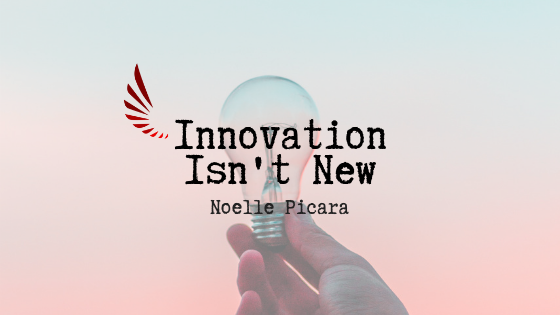It seems that recently the push in education is for innovation. This push probably comes from the “success of innovative companies” such as Google, Tesla, Amazon and Apple. Young people looking for jobs want to be part of an innovative culture where the leadership fosters innovation through tolerance for failure, encouraging willingness to experiment and valuing decentralized management. Our society and today’s education desires and even glamorizes an innovative culture, however they are doing it in a shallow and irresponsible way.
Perhaps you have heard of or seen an “Innovation day” where everyone is given a chance to experiment to solve a problem. For example, in a daily learning exercise students are given plastic bags and cardboard boxes and told to innovate something to help the homeless. This exercise can be valuable in some ways. However, the children have no idea what it is really like to be homeless. A new idea doesn’t come from one day of forced creativity. You cannot just sit down and say to yourself, “I’m going to be creative now.” While fresh eyes can provide valuable perspective, this kind of innovation creates mediocre ideas (your idea probably isn’t new, especially if you don’t know anything about the field).
Teaching kids poetry and songwriting has taught me that whenever people start out, kids or adults, they think they have a totally new idea. However they don’t realize that it’s the same idea that millions of others have. When people enter a new field and think they’ll create something, most often their idea wasn’t helpful at all, simply because they haven’t researched all of the ideas in the field that have already become obsolete, succeeded, or failed .
The truth is: Innovation is really tedious and boring. True innovation comes from doing the same thing every day over and over, and eventually great new ideas come from this repetition. When I took on the “50-song Summer” songwriting challenge in 2012, I used the following rule: generally, for every 10 things you write or create: one is great, three are terrible and the rest are just okay. Predictably, 5 songs out of the 50 ended up being well-received enough to make an album.
This concept of innovation is getting lost in education. In order to be innovative you need to develop your craft, look at other sources, think about audience, how it will be used, and use feedback. Something great can arise once in a while in this context. If you have the “I want everything quickly” mentality, it will be hard to be innovative in any sense. Innovation arises through boredom, repetition and hard work – not instant gratification. You can only see the idea to the finish if you’ve developed the tenacity to have skills to see it through.
Innovation isn’t a new trend in education (or in business or engineering for that matter). An engineering professor on Freakonomics podcast noted a similar theory on innovation in the engineering community. He said engineering is much more than just innovation and the next new thing. Engineers spend 70-80% of their time just keeping things going through maintenance of their old ideas and creations. This way of thinking about innovation has been present in the arts for years through practice and collaboration, and this dedicated long-term practice in performing arts should replace the one-day innovation workshops and isolated innovation classes in today’s education. If you want students to be innovative, teach them to play music.

